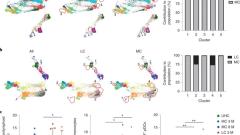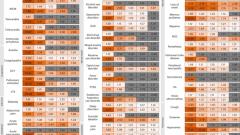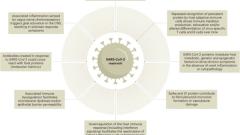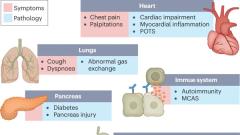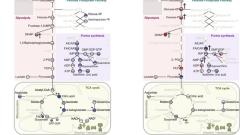ABSTRACT
Background
SARS-CoV-2 has triggered a pandemic and contributes to long-lasting morbidity. Several studies have investigated immediate cellular and humoral immune responses during acute infection. However, little is known about long-term effects of COVID-19 on the immune system.
Methods
We performed a longitudinal investigation of cellular and humoral immune parameters in 106 non-vaccinated subjects ten weeks (10 w) and ten months (10 m) after their first SARS-CoV-2 infection. Peripheral blood immune cells were analyzed by multiparametric flow cytometry, serum cytokines were examined by multiplex technology. Antibodies specific for the Spike protein (S), the receptor-binding domain (RBD) and the nucleocapsid protein (NC) were determined. All parameters measured 10 w and 10 m after infection were compared with those of a matched, noninfected control group (n = 98).
Results
Whole blood flow cytometric analyses revealed that 10 m after COVID-19, convalescent patients compared to controls had reduced absolute granulocyte, monocyte, and lymphocyte counts, involving T, B, and NK cells, in particular CD3+CD45RA+CD62L+CD31+ recent thymic emigrant T cells and non-class-switched CD19+IgD+CD27+ memory B cells. Cellular changes were associated with a reversal from Th1- to Th2-dominated serum cytokine patterns. Strong declines of NC- and S-specific antibody levels were associated with younger age (by 10.3 years, p < .01) and fewer CD3−CD56+ NK and CD19+CD27+ B memory cells. Changes of T-cell subsets at 10 m such as normalization of effector and Treg numbers, decline of RTE, and increase of central memory T cell numbers were independent of antibody decline pattern.
Conclusions
COVID-19 causes long-term reduction of innate and adaptive immune cells which is associated with a Th2 serum cytokine profile. This may provide an immunological mechanism for long-term sequelae after COVID-19.
